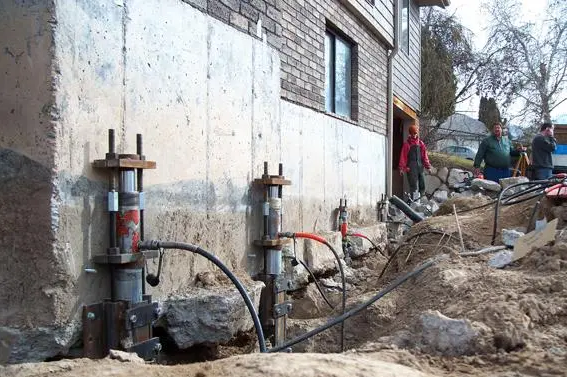Waterproof Your Basement Before the Next Storm Hits
Do you live in an area that receives torrential downpours every year? If so, you may be at risk of water damage to your home’s foundation, which could result in expensive repair work for Alabama Foundation Service. To avoid this situation, it is vital to waterproof your basement before the next storm hits. Use the following tips and advice to learn how you can do this safely and effectively. Interior basement waterproofing and drainage systems are essential to protect your home from potential water damage and keep your foundation secure during heavy rainfalls.
10 things you should know before waterproofing your basement
1. How do I know if my basement needs to be waterproofed?
2. What materials will I need to waterproof my basement?
3. When should I waterproof my basement?
4. Where can I purchase waterproofing materials for my basement?
5. Where should I place a sump pump in my basement?
6. What are some of the benefits of having a sump pump in your basement?
What every homeowner needs to know about water damage
When water damage occurs, it can take a toll on your home and your belongings. Cleaning up water damage is expensive and time-consuming, so it’s best to start by preventing it! Here are some tips for waterproofing your basement before the next storm hits:
– Seal all cracks in foundation walls with caulking or spray foam sealant. This will prevent leaks from reaching behind drywall or electrical outlets.
Cracks in your concrete foundation or walls are common entry points for water. Addressing these issues early with concrete crack sealing is a crucial step to keep your home protected. This simple yet effective measure prevents water intrusion and minimizes the risk of flooding or long-term damage.
Get all the facts before hiring a contractor
The best way to protect your home from water damage is to waterproof it. It’s a necessary step that you should take before the next storm hits and you find yourself in a flooded basement. Here are some things you need to know about waterproofing your basement:
Keep your family safe this winter by doing it yourself
Basements are one of the most common places for flooding, and when this happens, it can be disastrous. But now you can do something about it before your home is at risk: waterproof your basement! Whether you’re installing a new sump pump or just want some tips on how to waterproof your basement walls and floors, we’ll show you how.
Avoid common mistakes
So if you’re considering taking this on yourself, here are five mistakes to avoid.
Know what is in your soil and how to treat it
The first step in protecting your basement from floods is to be aware of the types of soil in your area. If you have clay or loam, this generally means that your basement will likely flood every time it rains. Clay and loam are water-retaining soils, which makes them ideal for farming and gardening but not so great if you live in a basement. Clay and loam can hold onto 10 times their weight in water. The best way to solve this problem is by installing a French drain system.
Another important aspect to consider is repairing basement wall crack caused by water pressure or shifting soil. Cracks in the walls can allow water to seep into your basement, exacerbating existing issues and potentially causing structural damage. Addressing these cracks promptly can protect your basement from further water intrusion and help maintain a dry, stable environment.

